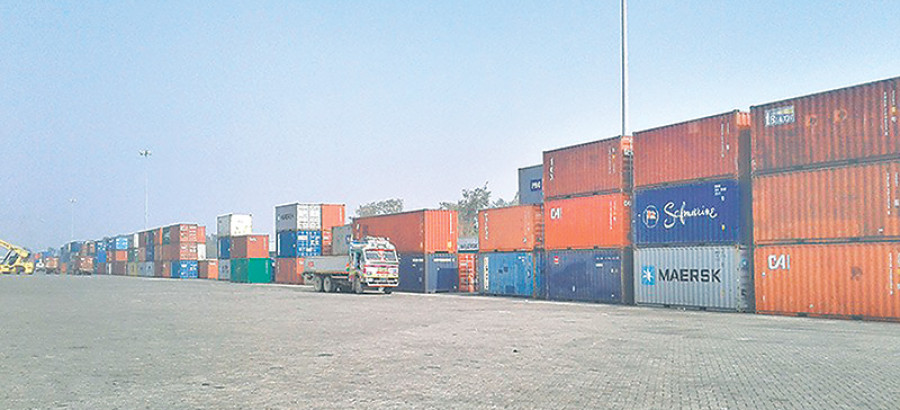Money
Lack of railway rakes delays transportation of goods
Inability of the Indian Railways to provide adequate number of rakes has delayed transportation of Nepal-bound third-country goods, including fertilisers and raw materials, from India, hitting a number of companies in the land-locked country.
Shankar Acharya
Inability of the Indian Railways to provide adequate number of rakes has delayed transportation of Nepal-bound third-country goods, including fertilisers and raw materials, from India, hitting a number of companies in the land-locked country.
Around 38,500 tonnes of urea destined for Nepal is currently stranded in Kolkata port and around 2,500 tonnes of the same commodity is stranded in Haldiya port, as Indian Railways has not supplied rakes to ferry those goods to the country.
The fertiliser was ordered by state-owned Agricultural Inputs Company and Salt Trading Corporation, according to Tarka Raj Joshi, chief of Sirsiya Dry Port Office of the Nepal Intermodal Transport Development Committee.
“The company that is operating the port at Haldiya has openly said that the fertiliser could not be transported to Nepal because of the inability of the Indian Railway to provide rakes,” said Joshi. “The port in Kolkata has been dispatching fertiliser only once a month because of the same problem.”
Nepal mostly relies on seaports at Kolkata and Haldiya to import goods from third countries. Imports from these ports have soared since India lifted over-four-month-long trade embargo on Nepal in February, 2016. But shortage of rakes has delayed transportation of goods from these ports to Nepal.
On Saturday, for example, Kolkata port could not dispatch 1,230 containers to dry port in Birgunj due to lack of railway rakes. On the same day, 589 containers laden with goods and 313 empty containers could not be sent to Kolkata from the dry port in Birgunj because of the same problem.
Himalayan Terminal, which operates and manages the dry port in Birgunj, however, said Indian Railways has allocated over one and a half dozen rakes for transportation of goods to and from the dry port. The
problem of shortage of rakes has emerged due to failure of Nepali importers to return empty containers on time, officials of the Terminal said.
“Indian Railways has provided adequate rakes for the dry port. It’s just that we have not been able to manage things well,” said Animesh Kumar, information officer and chief of the finance department at Himalayan Terminal.
Nepali industrialists, however, beg to differ.
Last week, during a programme attended by Finance Minister Yuba Raj Khatiwada, CEO of Jagadamba Steels, Anurag Sharma, said his company had to import raw materials from Biratnagar border point after Indian Railways failed to provide rakes to import goods from the dry port in Birgunj. He also said most of the steel companies in the Bara-Parsa industrial corridor were facing shortage of raw materials because of this problem and the compulsion to bring in raw materials from Biratnagar had raised their production cost, which will ultimately be passed on to consumers.
“Nepal government should raise these issues with the Indian government immediately,” he said.




 9.7°C Kathmandu
9.7°C Kathmandu















